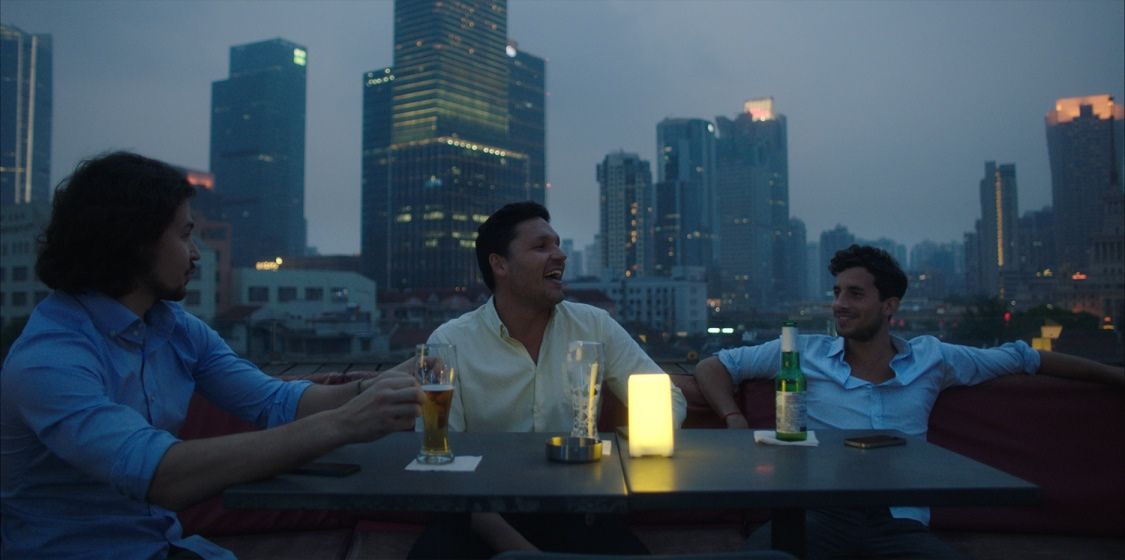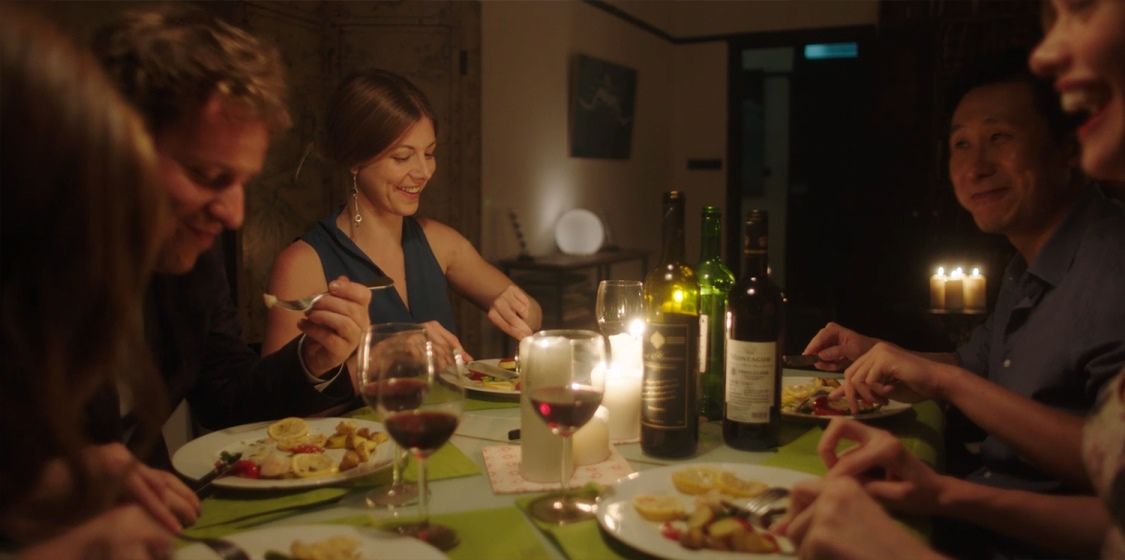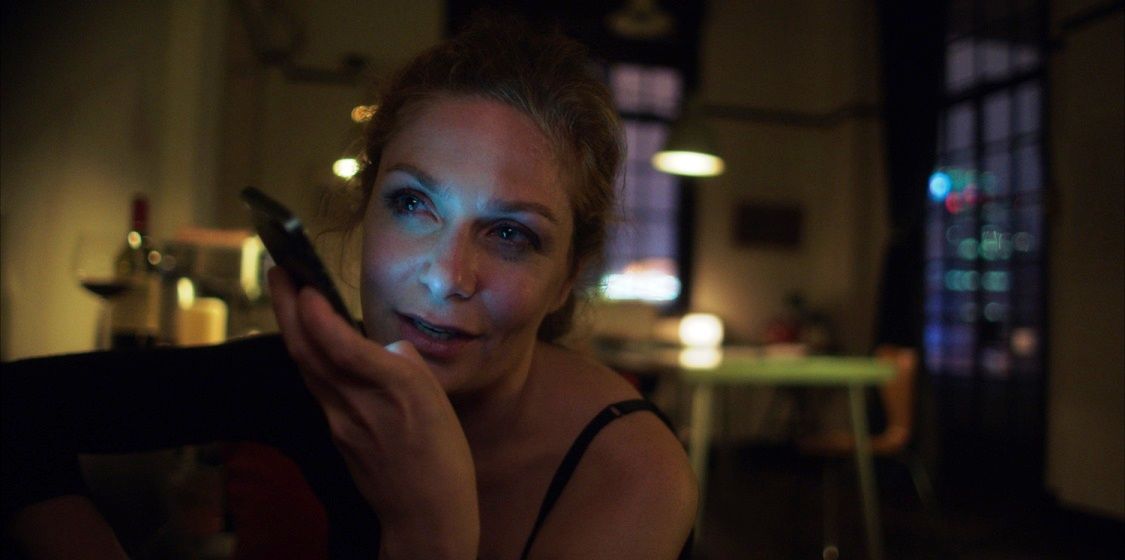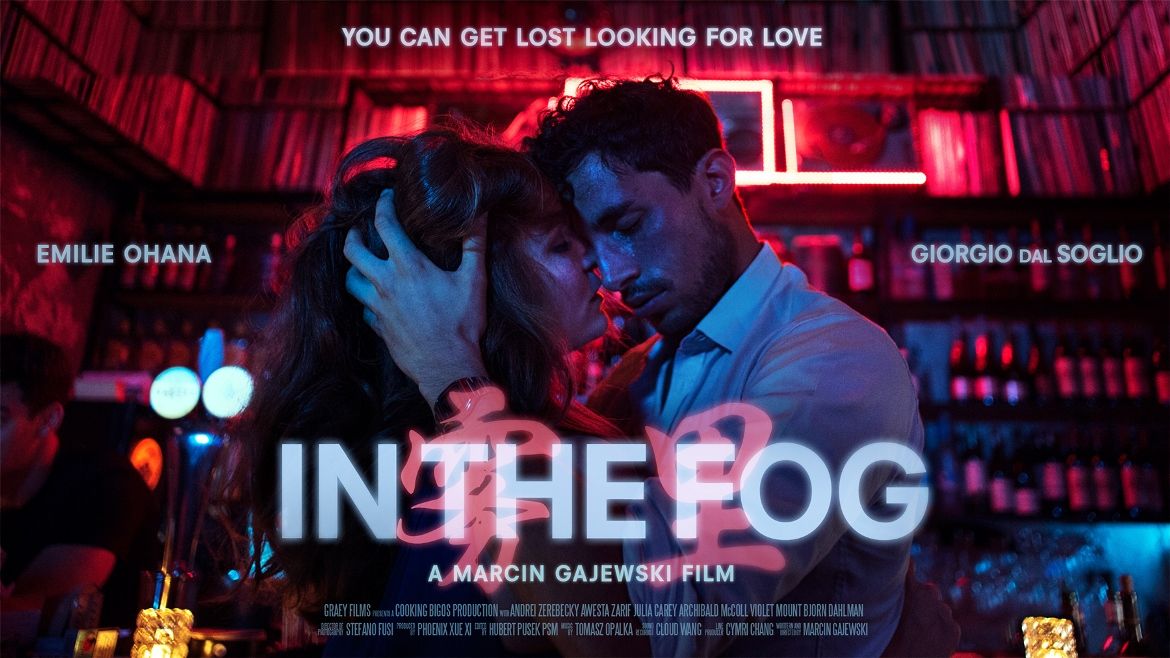In the Fog tells the story of two expats caught between the loneliness of life in Shanghai and a refusal to return home. Writer-director Marcin Gajewski chats about the importance of trust, the complexities of shooting in China, and the search for happiness in one of the world’s biggest cities.
In the Fog stars Emilie Ohana and Giorgio dal Soglio as two expats in search of love and an escape from loneliness as they drift through the haze of Shanghai’s neon lights. Faced with an abundance of choice and unwilling to return home, they revert to sex, excess, and partying as placeholders for real happiness.
Over the course of the film’s 17-minute run time, In the Fog questions the possibility that many—if not most—of life’s miseries are of our own making as we witness the very different ways in which the characters struggle to deal with their predicament. As writer-director Marcin Gajewski explains, although the film is clearly set in Shanghai, the aim wasn’t to make a film about the city per se, but rather about the experience of life in big cities in general.
“Understanding the complexities of a foreigner making a film about China, I wanted to lean less heavily into Shanghai specifically and more into universal themes,” Gajewski says. “I was adamant, however, about really wanting to portray the beauty of Shanghai the way I experienced it—the lights, the haze, this feeling of floating around, and the seeming lack of consequentiality.”

In preparation for shooting the film, Gajewski spent about half a year conducting research, interviewing people—especially women—in Shanghai to gain a better grasp on their experiences and perspectives. At the same time, he says that in telling the film’s story it was important for him not to give away any simple answers.
“Two themes that have formed a thread through my previous work have been communication and loneliness, so it was a small step to being inspired by this thing I saw happening in the expat community that felt counter intuitive to me,” he says. “Women that back home would’ve had a line of guys ready to marry them weren’t even able to get a follow-up date. From there I just started to construct a story about these two people that were lost.”
"In the end it really comes down to trust. Does your crew trust you and trust that you know what you’re doing?"
Despite prior creative experience working with photography and video and mixed-media installations, In the Fog represents Gajewski’s first major foray into narrative filmmaking. And, while he says he believes the fact that he was trying to do something nobody had done before helped, with nearly a hundred people involved across the entire project, it took a great deal of effort to stitch the whole project together.
“In the end it really comes down to trust. Does your crew trust you and trust that you know what you’re doing? Not easy on a first film but somehow I managed to slip under the door,” he confesses. “I’m particularly indebted to Emilie, Stefano [Fusi], and Cloud [Wang]. Without their trust and support I couldn’t have possibly pulled this off. Once they signed up it was much easier to get the rest of the crew to commit.”

Cast and crew availability, coupled with the breadth of the story Gajewski wanted to tell, meant the entire film had to be shot in thirty locations around Shanghai over just a six-day period. That reality, he says, taught him some important and practical lessons about focusing on the things that really matter most when it comes time to getting the job done.
“Don’t do thirty locations in six days. Just don’t. The less you sleep the less focused your judgement becomes,” Gajewski says. “Also, when you see something exciting happen that’s not in the script don’t be afraid to incorporate it. You’re already set up on location so you might as well shoot it too. That’s how the most important scene of the film came together for instance.”
"Don’t do thirty locations in six days. Just don’t. The less you sleep the less focused your judgement becomes."
Adding further significance to the shoot, just one week after completing principle photography, and after six years of living and working in Shanghai, Gajewski decided to relocate to Berlin. The move meant starting over in terms of finding both the talent and the facilities to complete post production on the project—a process which took nearly a year to complete. At the same time, Gajewski says he found himself dealing with both reverse culture shock as well as the emotional weight of having left China
“When I watch the film now, it makes me miss Shanghai a lot. The locations really speak to me, the homes were of our dear friends. All the bars were my favorites that we used to hang out at a lot,” he says. “The shop belonged to a friend, the clubs belonged to friends, I organized my birthdays at Mr. Q’s restaurant. Some have called it a testament to our time there. I don’t see it that way but I understand why some do.”

Since its completion, the film has screened at a number of European festivals and is now available to watch online. And although he admits the interpretations some viewers have had have deviated from his intentions, Gajewski says he is still happy to see audiences connecting with the film’s emotional authenticity.
“There’s this funny thing that happens that a lot of viewers react to it as if it’s a documentary film—especially those that have lived in Shanghai—in the sense that they respond to it as a factual representation rather than a fictional story. This wasn’t my aim at all but I do consider it a compliment,” he says. “In general it seems that a lot of people are really connecting with it though. One of my favorite reactions was from someone that said she felt the exact same way in Berlin, meaning that it spoke about feelings rather than places.”
"Look, life is short and doing things that are easy aren’t worth doing. Go hard, go with love in your heart and ambition in your thoughts."
Having moved on to other projects—including work as a VR director and creative director in Berlin—Gajewski says the distance and time in between have given him the chance to reflect on both his experience in China and the challenges he faced in making In the Fog.
“It dragged me through the mud and taught me lessons about myself that hurt, but it also showed me that I really do want it badly enough. All of the above are good things,” he says. “Look, life is short and doing things that are easy aren’t worth doing. Go hard, go with love in your heart and ambition in your thoughts. Does that sound pretentious? Maybe. But that’s an honest risk I’m willing to take.”




